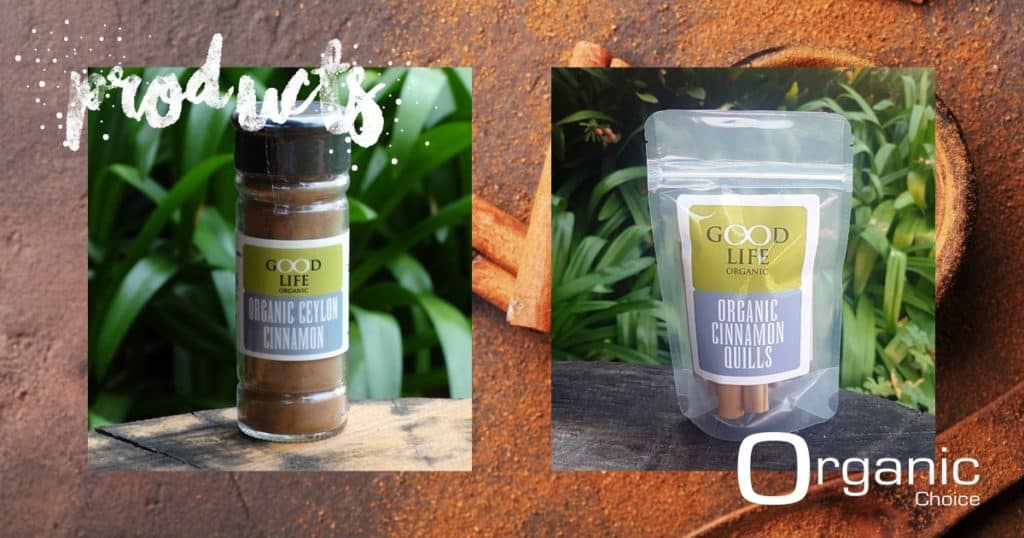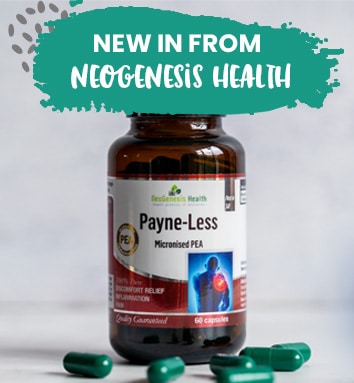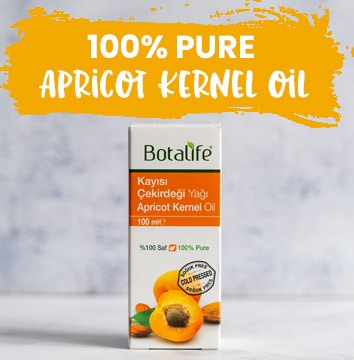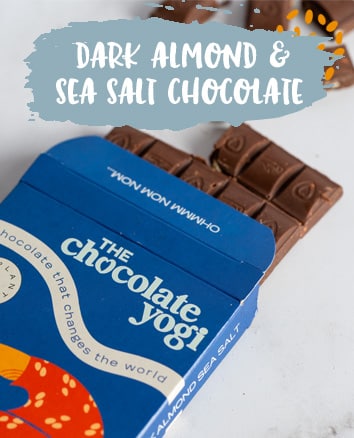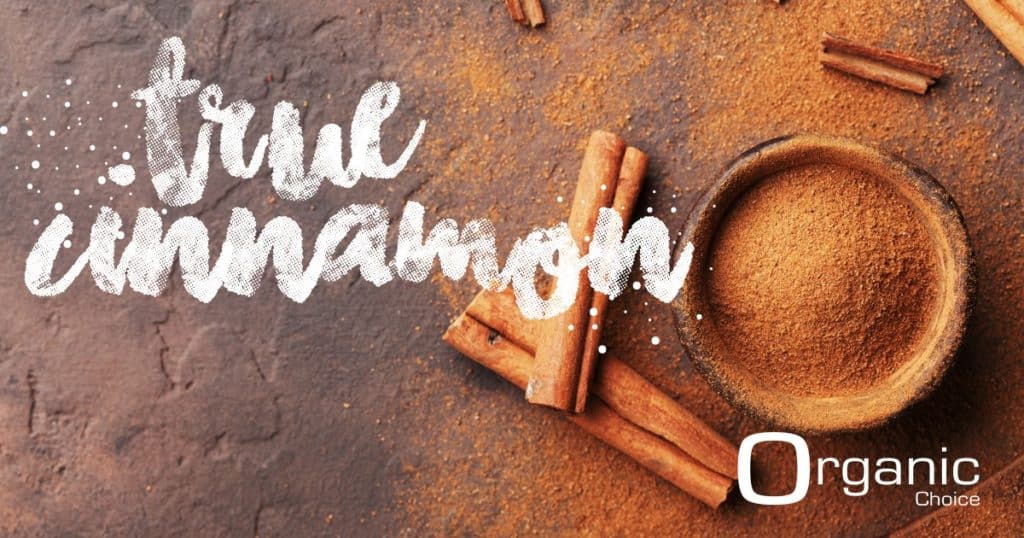
We sprinkle it on pancakes and desserts and mix it liberally into that ubiquitous autumn favourite, the pumpkin spice latte. We use it to flavour fragrant savoury dishes, as a preservative and as a health supplement. Our trusty friend Cinnamon sits in almost every kitchen, its unique, spicy aroma easy to conjure up from memory. The autumnal pleasantness associated with Cinnamon is probably the reason most of us consider it to be a harmless accompaniment – who doesn’t love Cinnamon? Many of us are also aware of the long list of health benefits that Cinnamon provides, from its antibacterial properties which fight bad breath, as a treatment for colds, coughs and digestive problems, to its reported ability to help increase insulin sensitivity, which holds tremendous potential for diabetes sufferers.
The thing is, the Cinnamon most of us pick up in our grocery stores as a staple for the spice rack is not even considered ‘true Cinnamon’ by those in the know. Cinnamon is divided into two major groups. Cassia, Saigon and Korintje Cinnamon fall within the ‘Cassia’ category. Cassia is both the name of one of the variations of Cinnamon, and the over-arching category containing these three Cinnamons. These variations are very similar to each other in taste and appearance and are what most of us have been consuming on our pumpkin pie and Cinnamon buns for all these years.
The second category contains only Ceylon Cinnamon. Ceylon is lighter, more crumbly and has a more delicate and sophisticated fragrance and flavour than the Cassia varieties. Not only is Ceylon Cinnamon widely considered to be more generally pleasant than its bark-like cousin, Cassia, it also poses no threat to our health. That’s right, the innocuous little bottle of Cassia Cinnamon that is probably spreading its fragrance through your kitchen cupboard contains large doses of the harmful compound, Coumarin.
Coumarin is found naturally in many plant species and acts as a blood thinner that is toxic to the liver in large doses. ‘Large doses’ is a relative term in the Cinnamon context. While we don’t usually eat Cinnamon by the spoonful, the Tolerable Daily Intake (TDI) of Coumarin is only 0.1mg per kilogram of body weight. Cassia Cinnamon contains about 1% of Coumarin, while Ceylon contains a usually undetectable trace amount, 0.004% (250 times less than Cassia).
While Ceylon Cinnamon contains almost no Coumarin, it provides all of the same health benefits as the more commonly used Cassia. It is high in a substance called Cinnamaldehyde, which is responsible for most of the health benefits. Ceylon Cinnamon is full of antioxidants which protect our bodies from oxidative damage caused by free radicals. In fact, the antioxidant activity of Cinnamon has been shown to out-perform even ‘superfoods’ like garlic. Cinnamon is also good for the heart, as it improves some of the key risk factors for heart disease, including blood pressure and cholesterol.
Research is showing positive signs that Cinnamon may help to inhibit a build-up of protein in the brain called Tau, which is one of the hallmarks of Alzheimer’s disease, as well as help to protect neurons and improve motor function in Parkinson’s disease sufferers. Studies are also showing positive results for the use of Cinnamon in the treatment of diabetes, as it may reduce spikes in blood sugar and improve metabolic markers associated with insulin resistance.
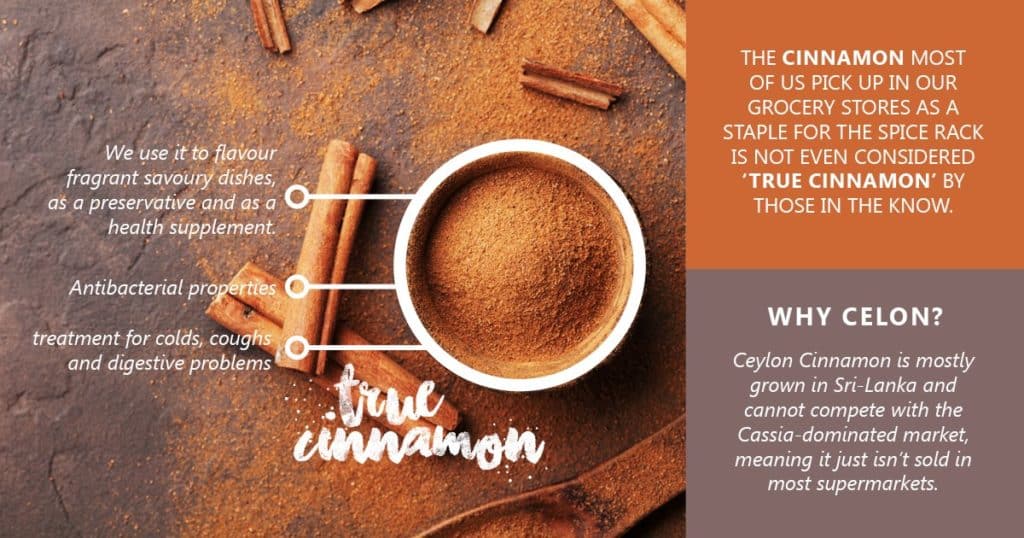
So if Ceylon Cinnamon gives us all of the incredible health benefits of Cassia Cinnamon, is generally agreed to taste better and contains 250 times less harmful Coumarin, why are we all still buying and consuming Cassia Cinnamon? The answer, most simply, is because Cassia is the cheaper option. Cassia is grown in and exported mostly from Indonesia and China, in massive volume. Ceylon Cinnamon is mostly grown in Sri-Lanka and cannot compete with the Cassia-dominated market, meaning it just isn’t sold in most supermarkets.
If you regularly consume Cinnamon or are taking Cinnamon for health related reasons, it is highly recommended that you switch to Ceylon, as regular intake of Cassia is likely to cause a build-up of Coumarin which may eventually toxify your liver. Our favourite options are Good Life Organic Ceylon Cinnamon powder and Good Life Organic Cinnamon Quills.
